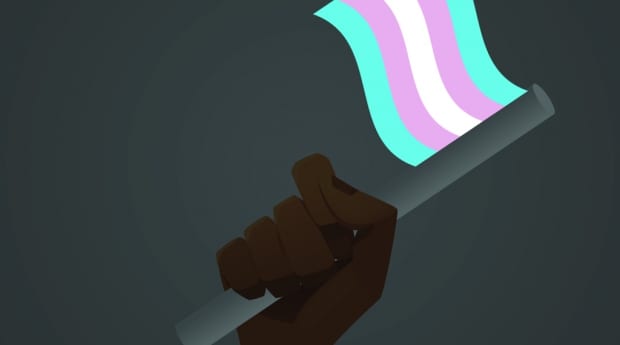Canadian trans advocates say the new federal government has watered down its commitment to include trans people in anti-discrimination laws, claiming the commitment the Liberals revealed after last month’s election is effectively toothless.
The accusations surround the government’s pledge to protect gender identity, but not gender expression, or outward appearance.
“I might be protected as a transgender person based on my gender identity, however they don’t ask me for my ID when they beat me up,” says Morgane Oger, chair of Vancouver’s Trans Alliance Society.
“When I get assaulted, or when I get denied a job, it’s not because of what my birth certificate says or what my gender identity is. It’s often because of my gender presentation.”
Her comments come after the Liberal party reinforced its pledge to implement the goals of Bill C-279, a four-year saga that ended in heated debates earlier this year over exemptions for public washrooms.
“I’m committed to making sure that we’re defending trans rights fully and completely,” Liberal leader Justin Trudeau said in mid-August, two months before he was elected prime minister.
On Nov 14, 2015, the government took the exceptional step of publicly releasing Trudeau’s ministerial mandate letters, in which the prime minister assigns each minister with his priorities.
In his letter to Justice Minister Jody Wilson-Raybould, Trudeau listed 15 wide-ranging priorities, the last of which includes “legislation to add gender identity as a prohibited ground for discrimination” under both Canada’s human-rights and hate-speech provisions, which make it a criminal offence to discriminate against listed minorities.
But advocates like Oger quickly noticed that the directive doesn’t address gender expression.
Oger said non-binary people should be explicitly protected in the law. She also noted that people who aren’t trans have faced discrimination based on gender expression, such as lesbian author Sheila Gilhooly.
Samantha Perrin of the Ottawa-based advocacy group Gender Mosaic says the government needs to address the actual cause of the violence faced by her peers.
“The problem is gender identity is what people are dying for; this is what people are getting killed for — because they express a gender identity that someone else disagrees with.”
According to barbara findlay, a veteran Vancouver lawyer who specializes in trans issues, provisions against discrimination based on sex have already protected trans people in court cases.
“Although trans people currently have full legal protections under all human-rights laws on the grounds of sex, it is important for educational reasons to add gender identity and gender expression, so everybody is clear about who is covered and what kind of conduct is permissible,” says findlay, who spells her name in lowercase.
The problem, she says, is that very few people — including trans people themselves — realize they’re protected under the law.
“The addition of explicit protection will only make things better,” she said, adding it would save lawyers from having to dig through past cases to argue for their trans clients.
Perrin, 81, says she’s perplexed anti-discrimination measures still haven’t been enacted.
“Trans issues just didn’t exist when I was young; now it’s something that’s everyday news,” she says.
“It seems that they’re pussyfooting around the issue.”
Wilson-Raybould’s spokeswoman said the minister would not be available for an interview this week. A justice department spokesman added that “currently there is no additional information or timeline” regarding the pledge.
Randall Garrison, the NDP’s LGBTQ issues critic, who tabled Bill C-279 in 2011, said he plans to introduce his original legislation “as soon as it’s possible” as another private member’s bill, which is harder to pass than a government bill. He said if the government puts forward its own bill beforehand, he will put forward an amendment to add gender expression.
Various parliamentarians have tried for the past eight years to enshrine trans protections into Canadian law, and advocates will likely have to wait longer.
The House of Commons is scheduled to sit for just a few days in December, before reconvening in late January. And although the Senate has a tradition of passing all government bills, Trudeau has not yet specified how he will address the other chamber’s Conservative majority.

 Why you can trust Xtra
Why you can trust Xtra


